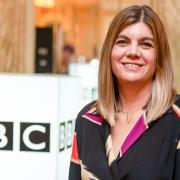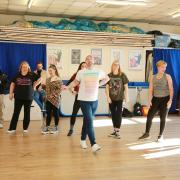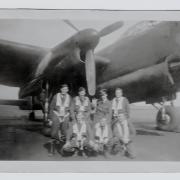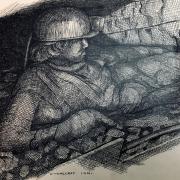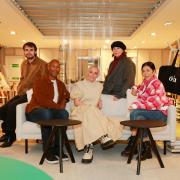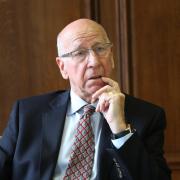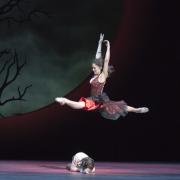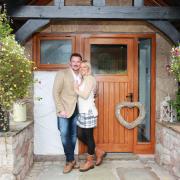Everyone loves the Vicar of Dibley. And why not? Four local church women tell us about their faith in the future

The General Synod of the Church of England’s historic vote to allow the ordination of women as bishops places the vicar of St Peter’s parish church, Hale, in a pivotal position in the Diocese of Chester.
In 2011, the Rev Libby Lane was appointed Diocesan Dean of Women in the Ministry by the Bishop of Chester. The post was created because of the growing number of women in the Anglican clergy. And the church was approaching a crucial time in its life when there would be another significant degree of transition with regard to legislation that will now very soon become a reality - the ordination of women as bishops.
‘It was a new post, that put me right at the heart of the structure and institutions of the diocese. The bishop wanted someone well bedded in, known and trusted to be able to work with him in the diocese to manage that transition, ‘ she said.
Currently Libby is one of eight women representatives who sit in the Church of England’s House of Bishops and has been, for 10 years, a Bishops selection adviser, making recommendations to the church about candidates offering themselves for ordination. Soon, some of those candidates will be women. She is understandably reticent about her own chances of being ordained one of the Church of England’s first women bishops, but one would not bet against it.
As the senior female member of the clergy in the Chester Diocese and one of the most influential women in the wider church, Libby was one of the key organisers of the national celebration in May of the 20th anniversary of women in the priesthood. Hundreds of celebrants from all over the country gathered for a picnic at Westminster Abbey before walking to St Paul’s Cathedral for a service of thanksgiving and communion led by the Archbishop of Canterbury, relayed outside St Paul’s into Pasternoster Square.
Highly controversial two decades ago, the ordination of women could not have been accorded a more prestigious anniversary celebration by the Church of England; all the women priested and all the bishops (as yet all male) ordained in 1994 were invited to take part. It was a spectacular precursor for July’s historic vote in York.
Libby, herself a member of the ‘class of 94’, was born in Glossop and educated at Manchester High School for Girls and St Peter’s College Oxford. She says of her role as Dean of Women: ‘One of the wonderful things about it is the engagement I have with women of enormous capacity and faithfulness...and what a wonderful job they are doing in their own parishes and in the life of the diocese.’
The growing importance of women in the Church of England is reflected in the statistics. While there are no women bishops (yet) and relatively few archdeacons and deans in Cheshire, up to 20 per cent parish incumbents are women, up to 25 per cent of ordained clergy are women and the current ratio of women to men in training is 50-50.

We’re here for people
The Rev Dallas Ayling, Rector of the Priory Parish including Christ the King in the centre of Birkenhead, mother of two grown up children and grandmother of two, was born and brought up in Guildford, trained for the ministry at Trinity College, Bristol and ordained at Chester Cathedral in 1998.
Previously a curate in Ellesmere Port, she came to inner-city Birkenhead in 2002, first as a team vicar and has served as rector since 2006. The Rev Ayling said: ‘I hung around churches from an early age and sang in church choirs for years. It was not until women could be ordained Deacons that I began to realise that God might just be calling me to be ordained. The journey was not easy nor straight forward but in the end it happened and I feel very privileged to serve God as a priest in the Church of England.
‘Working in the parish gives me immense satisfaction because I am meeting people whose lives are really all about how to survive. To be there and support them is something I feel very passionate about. I lived in Bristol for 20-odd years and unfortunately became a single parent with little income myself so I know what it’s like to have to bring up children on a small amount of money.
‘I never expected to be ordained - I believe it’s what God wanted me to do, that’s the only was I can describe it - or to serve in an urban parish, especially one which is at the high end of all the indices of deprivation. But I have been here for 12 years and I think my identification with local people helps me to serve in this kind of place.
‘The great strength of the church is that we’re always here for people. We live here - right at the heart of the community -when most of the people working in professional agencies do not.’
From the law to the church

The Rev Janet Bacon, first woman vicar of All Saints, Cheadle Hulme, arrived at the parish in June 2012 and celebrated the church’s 150th anniversary alongside the Archbishop of York, the Rt Rev Dr John Sentamu, who preached and led the Sunday Holy Communion service there late last year.
‘The visit was arranged before I came and everyone was looking forward to it. We were all delighted that the Archbishop joined us for the climax of what had been a memorable year of celebrations for All Saints.’
The Rev Bacon is one of a number of women incumbents in the suburbs of Stockport; one of the longest serving being the Rural Dean of Stockport, Canon Dianne Cookson, vicar of St Saviour’s Great Moor since 1996 and one of the most recent appointments being that of Canon Elaine Chegwin Hall at the landmark St George’s, Heaviley.
A former solicitor practising in Oxfordshire, the Rev Bacon said: ‘I was living in Oxford when I first discerned a call to the ministry, but it didn’t crystallise until I married and moved to Essex. I was deaconed in 1998 and priested in 1999 in Chelmsford and prior to coming to Cheadle Hulme I looked after three churches on the outskirts of Sandbach.’
She added: ‘I love the mission because there is never one day the same as the next - there are always new challenges. There’s a wide spectrum of people in the parish, all with similar hopes and fears and facing problems which hopefully I can help them with.’
Rural churches are the backbone
The Rev Vereena Breed reckons that congregations in her scattered, rural parish - a combined benefice embracing four picturesque village churches - must have been shocked by her appointment in 2004.
‘Not only was I the first woman vicar, I was - then - fairly young with small children when most of the previous recent incumbents had been men in their late 50s nearing retirement. And what’s more, I am a foreigner!’
Her parish, based at St Michael’s North Rode, a village with just 178 souls, takes in St Michael’s Wincle, St Saviour Wildboarclough and St Mary the Virgin at Bosley - where the Cheshire plain gives way to the foothills of the Peak District, is in complete contrast to the mines and heavy engineering of her native Ruhr valley in Germany. ‘But I’m absolutely loving it,’ said the Rev Breed, who served for five years as chaplain to the local agricultural society and has recently been appointed Rural Dean of Macclesfield. ‘I never thought I’d end up in this country, but it was God’s plan - or sense of humour!’
She first came to England as an exchange student in 1993 and met her husband-to-be at St John’s College, Oxford. After living for a time in Germany where she served in the Lutheran ministry in Konstanz on the border with Switzerland, returned to the UK when her husband’s job brought him back in 2000.
‘At first I think everyone was curious and came along to church to see what I was like,’ she smiled. ‘St. Michael’s is a traditional Parish Church where the Book of Common Prayer is still highly popular and frequently used for services. Nevertheless the congregation is very open and friendly and very keen to get families involved in our regular worship.
‘That is an expression of the welcoming nature of people here in North Rode! I have a real heart for rural ministry and strongly believe that our rural churches are the backbone of the Church of England.’




